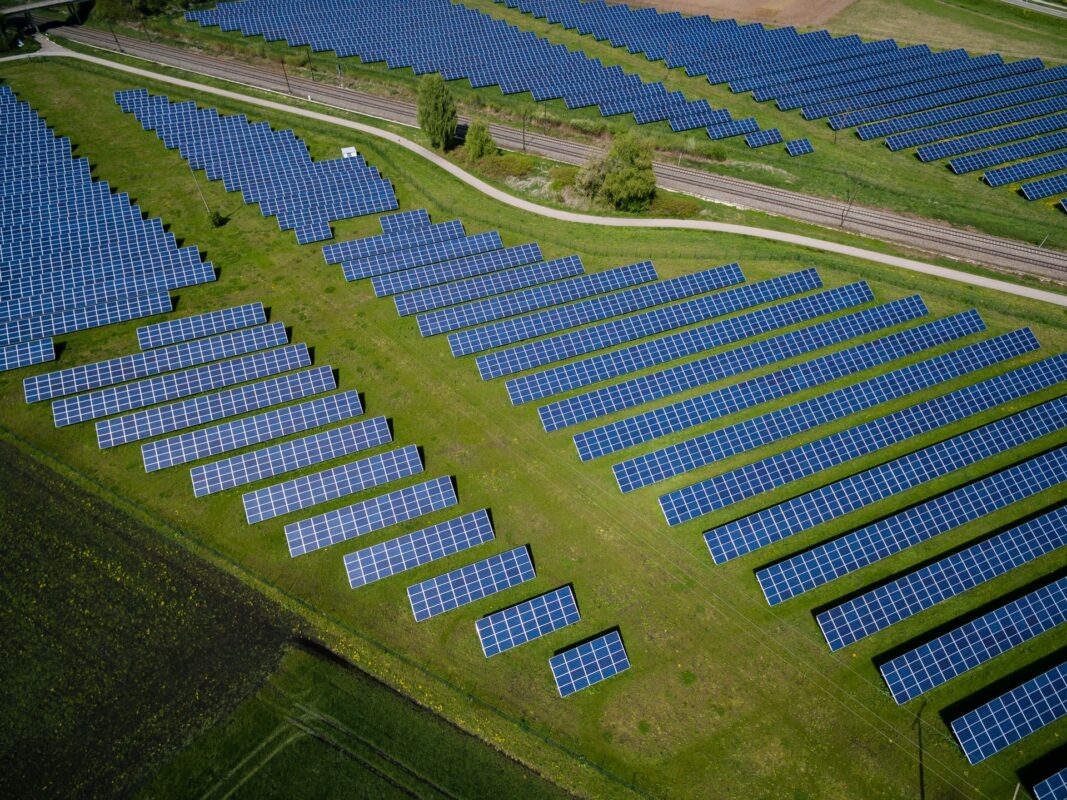
If all proposed solar farms in the UK were to come to fruition, it would still only account for 0.4% of agricultural land. Image: Andreas Gücklhorn (unsplash).
Almost three quarters of Conservative Party members support solar power, a new YouGov survey has found.
Conducted on behalf of the Energy and Climate Intelligence Unit, the survey showed that 73% of members supported solar, including ground-mounted solar farms.
Similarly, 71% supported new onshore and offshore wind energy, and 85% supported home energy efficiency measures, including investment and incentives for home insulation.
“The survey results reinforce evidence that the public are in favour of solar farms, contrary to what we hear from some members of parliament and from other organisations,” said Chris Hewett, chief executive of the trade association Solar Energy UK.
“New solar power is cheap, subsidy-free, quick to install and expanding rapidly. It’s helping to cut reliance on eye-wateringly expensive gas, lower bills and bolster the UK’s energy security too.”
The survey was undertaken as the Conservative leadership contest continues, with either Rishi Sunak or Liz Truss expected to be elected as leader of the party and therefore Prime Minister on 5 September.
A total of 82% of Sunak’s supporters endorsed “a new generation of solar energy” the survey found, while 71% of Truss supporters did.
The election is taking place amidst the backdrop of the cost-of-living crisis, with the energy bills price cap expected to surge to £3,420 for Q4 2022 according to research from the BFY Group. Record high wholesale prices are driving this, exacerbated by the impact of Russia’s invasion of Ukraine, which has led to energy security concerns dominating 2022.
“Boosting energy efficiency as well as wind energy are popular with the public at large and the Conservative Party membership,” said Jess Ralston, senior analyst at ECIU.
“Both are core parts of reaching net zero emissions, which we need to do to stop weather extremes getting worse. They will also bring down bills with wind and solar being by far the cheapest energy sources. New offshore wind farms are now four times cheaper than gas power stations.”
Additionally, there are concerns around food security due to the war, with a number of vocal parties criticising solar for its land use. Solar Energy UK flagged that far from solar farms posing a threat to the UK’s food security, they provide a reliable source of additional income for the country’s hard-pressed farmers.
If every solar farm currently put forward was built, this would still account for less than 0.4% of the UK’s agricultural land and 0.28% of the UK’s entire land area, highlighted the trade association. Solar farms also offer a number of additional benefits, such as providing a haven for wildlife or providing an area to raise grazing livestock.
The survey follows recent government polling that found that the general public has a generally positive view of solar, with 81% of respondents saying they would be happy or not mind having a solar farm in their local area.

